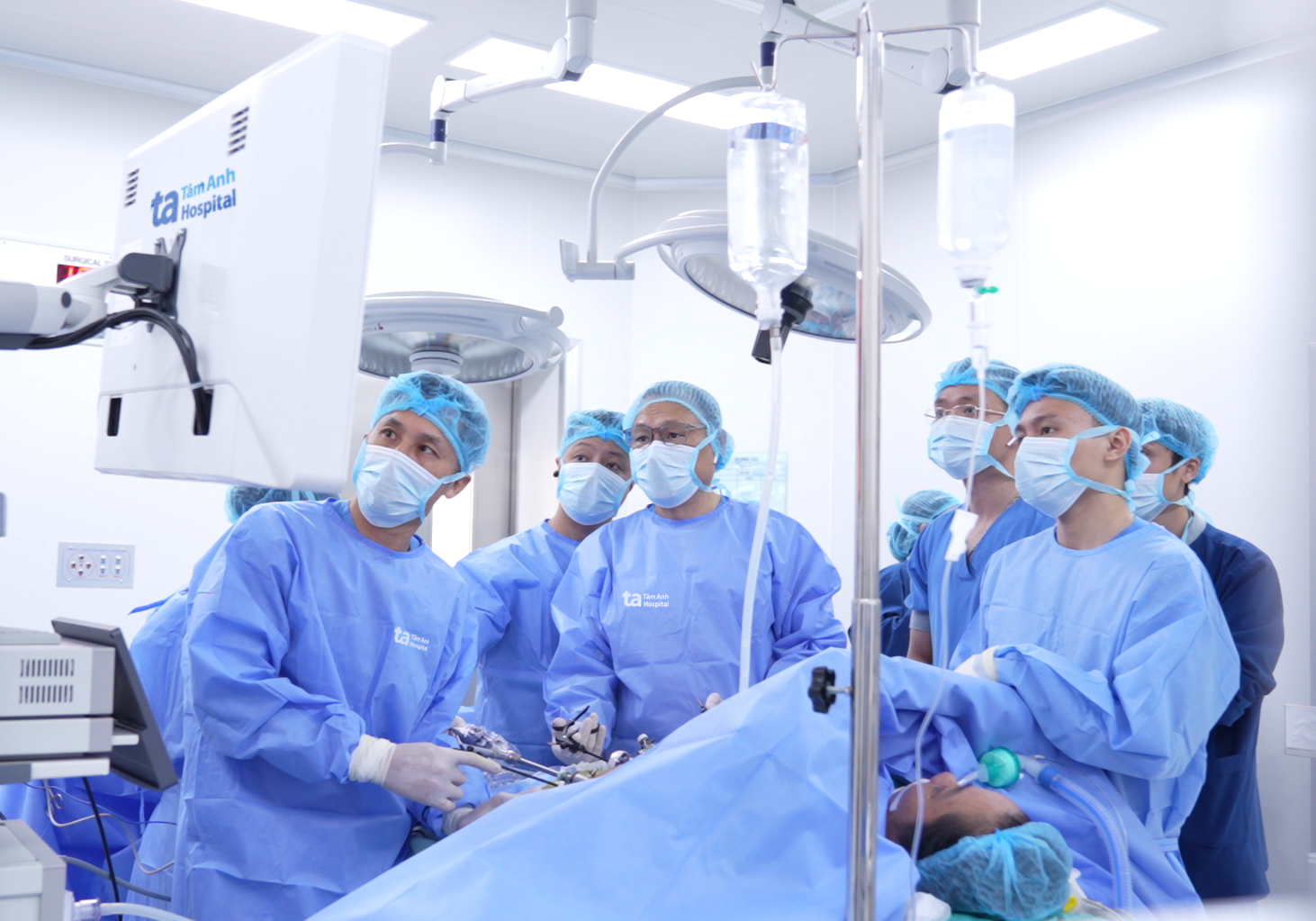Ngan gained nearly 60 kg after giving birth two years prior. She sought treatment at Tam Anh General Hospital in Hanoi, weighing 130 kg and standing 1.7 m tall. Her BMI was 45.2, and her visceral fat area measured 248 cm2, 2.5 times the safe threshold, classifying her as severely obese.
Dr. Le Ba Ngoc, Deputy Director of the Weight Control and Obesity Treatment Center, diagnosed Ngan with several comorbidities, including grade 3 fatty liver disease, elevated liver enzymes, high blood pressure, prediabetes, and sleep apnea. Due to the obesity and its dangerous complications, she needed to lose 30-35% of her body weight.
Professor Trieu Trieu Duong, Director of Surgery at Tam Anh General Hospital, recommended and performed laparoscopic sleeve gastrectomy. This procedure removes the fundus, the part of the stomach that produces ghrelin, often called the "hunger hormone." This reduces hunger, shrinks the stomach, and limits food intake, aiding weight loss.
 |
Professor Trieu Trieu Duong and the surgical team performing Ngan's gastric sleeve surgery. Photo: *Tam Anh General Hospital* |
Before surgery, Ngan needed to manage her pre-existing conditions like high blood pressure and prediabetes to minimize surgical risks. During consultations, doctors discovered she also experienced anxiety and prolonged postpartum stress.
"An unstable mental state can affect a patient's ability to manage their health before surgery and can impact long-term results," explained Dr. Ngoc. There was a risk of Ngan reverting to uncontrolled eating habits driven by emotions, potentially leading to weight regain. Therefore, she received regular psychological counseling at the hospital to reinforce her treatment goals, enhance self-control, and maintain motivation and confidence in her weight loss journey.
In addition to counseling, Ngan was prescribed medication to aid weight loss, reduce visceral fat, and treat obesity-related complications such as elevated liver enzymes, high blood pressure, and high blood sugar. Nutritionists and exercise specialists helped her develop a personalized diet and exercise plan to improve her overall health and facilitate weight loss.
After 5 months of pre-operative preparation, Ngan lost 12 kg. Pre-surgical screenings showed her blood sugar, blood pressure, blood lipids, liver function, and blood clotting factors had stabilized, clearing her for surgery.
 |
Dr. Ngoc consulting with Ngan during a follow-up appointment. Photo: *Tam Anh General Hospital* |
One week post-surgery, Ngan was discharged having lost an additional 7 kg and in stable condition. She continues post-operative monitoring and medical treatment at the Weight Control and Obesity Treatment Center to prevent potential nutrient deficiencies, acid reflux, and gallstones.
Minh Duc
*The patient's name has been changed.
| Readers can submit questions about endocrine diseases here for doctors to answer. |












